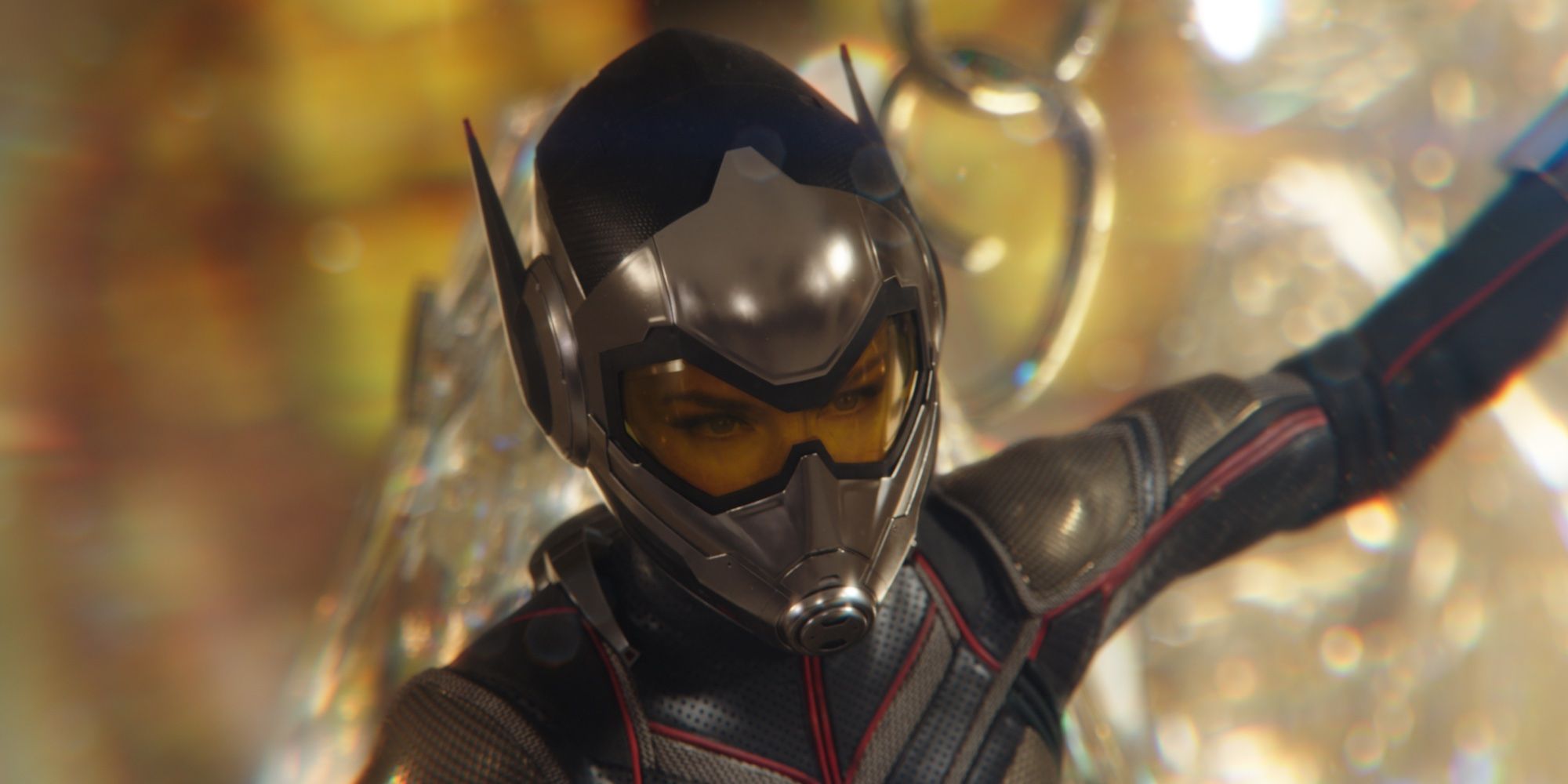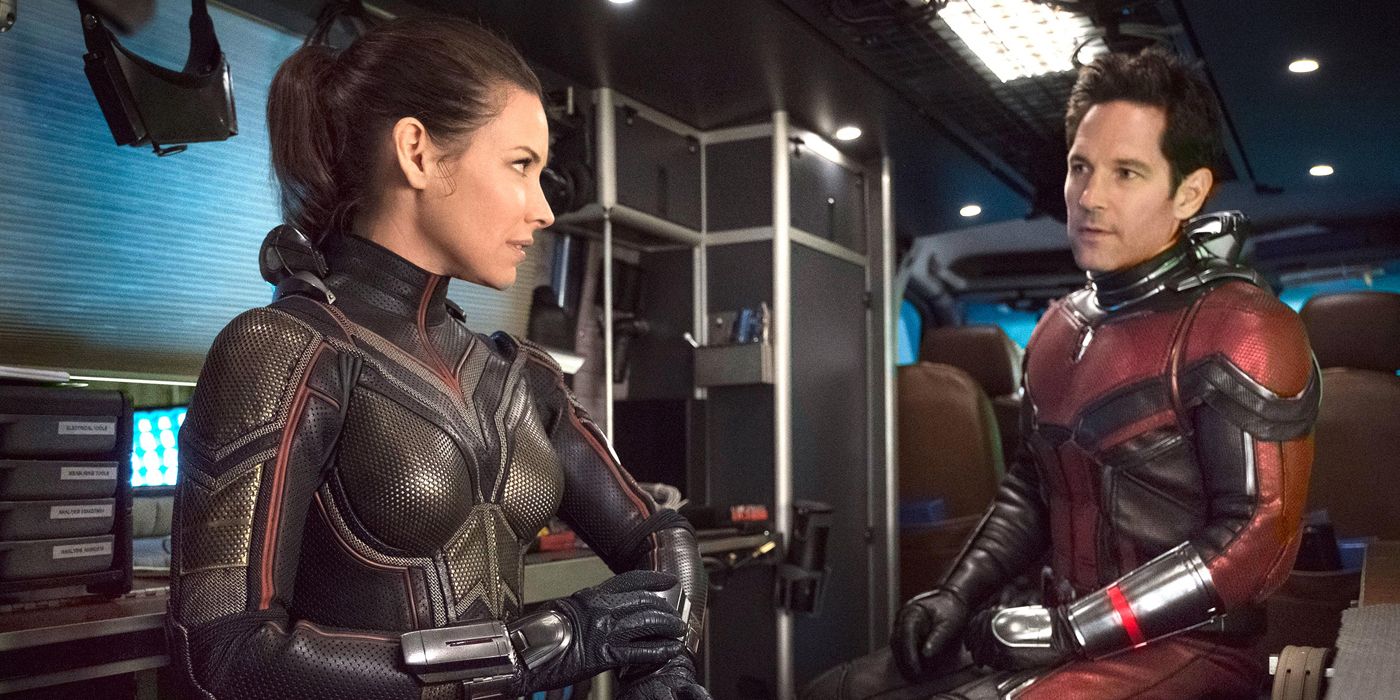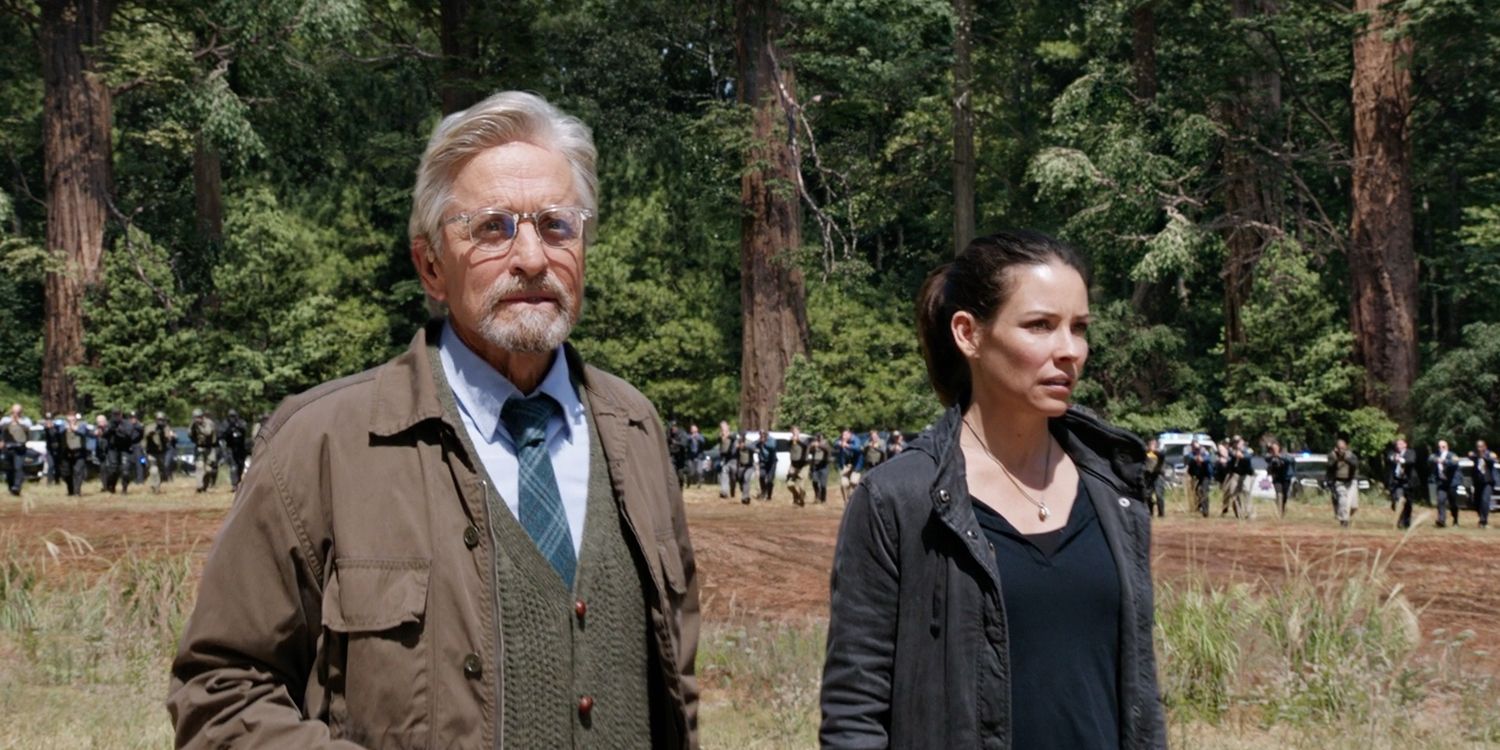
Ant-Man and the Wasp gave Evangeline Lilly's Hope van Dyne her moment. Even in Ant-Man, Hope was clearly the stronger hero, but in the sequel she got title billing and the chance to finally show it. The result was a light-hearted romp that gave Wasp her due after fifty years in the comics. And, while her future in the MCU is currently as a pile of dust, there's every reason to expect more from her in the future.
For the home video release of Ant-Man and the Wasp, we caught up with Lilly to chat about what changed on the sequel, whether she felt left out of the Quantum Realm, and why her performance of being snapped was cut.
Related: Everything In The MCU Set AFTER Thanos' Snap
I want to start at the beginning. Obviously, you had been involved in the first Ant-Man and you were involved before Peyton Reed actually came on. How was that different this time around working with him from the very start of the project?
Yeah, it was an enormous difference for me because I am the type of person who's very slow to… I’m very slow, really, to completely trust somebody. And so, for me, the first film, I was always looking… I guess I was always looking to have my own back. Because I’ve never worked with Peyton before. I wasn't entirely certain of how much I can trust him, or where he was going to take this, or what he had intended or envisioned for the character. It might be different from how I wanted her to come to life.
And it was so exciting to approach the second film, having loved and adored his choices with the first film. Having felt that he… way, way beyond exceeded my expectations on the first film and made the film so much more than I could've ever imagined. And so, I was able to just do an enormous trust fall and give myself completely over to Peyton. And although I'm always going to come to the table with ideas and opinions… in the event that I wasn't certain, or we disagreed, I knew I could trust him. So, it was so much more fun. Because, just to be so free.
This one is very different because you finally suit-up - you become Wasp. When you signed on for the role, was that always the end goal for you? And when did it come about that the sequel is when it's going to be time for that to happen?
It was in the original script [for Ant-Man] that I was sent, when Marvel and I were sort of courting one another; Hope was given the suit at the end of the movie. So, I knew that it wasn't in the first film. I knew that if she were to ever become a superhero, it would be in the second film. But believe it or not, and you might not, but the truth is I didn't actually sign on to get there. I liked Hope. I just liked her character. I really was… Originally when I was sent the script, there was this very intense ambiguity as to whether or not she was a good day or a bad guy. And that carried through the film until about three-quarters of the way through the film. And you were never really sure whose side she was on until the climax of the film.
And I loved that and I'd never had been given the opportunity to play someone who was somewhat villain-esque. And so, I was excited about that, and I loved her intelligence, and I loved her strength, and I loved that she also had this beautiful redemptive moment with her father, and they were just so many strong things about her as a human being. That really, to me… Getting to put on the suit was never the point, it was never the goal, it was more of a bonus. It was like, I got to be a part of something really cool and then, "Oh! There's this sweet incredible bonus at the end of it." But now, I also get to become a superhero.

In Ant-Man, the role that you got to play. It's a very powerful, very physical role. You're fighting and beating Scott Lang up basically in the training sequences. And because of that, even though you only get the suit in the second one, you will have been trained for both of them. How did that training regime change between films?
It dramatically changed. Because when I came in for the first film, there was decided a style for Hope. She was… decided she was going to be a Muay Thai expert. And that I was going to do an MMA based training. And so, I was basically doing a lot of boxing and mixed sort of learning. Learning that kind of fighting. When we came to the second film, I came in with very strong opinions and ideas of how I wanted to walk, to move. And one, I wanted her to move more like I move, because if I'm going to play a character for hopefully, knock-wood, movie upon movie, it's going to be very difficult if I'm constantly having to force myself into a physical box that doesn't fit.
But more importantly, I just wanted to make sure that the way that she moved and that the way she physically expressed herself was honoring the comic books. Which, in those books, she was extremely feminine. She was extremely graceful and not all, I think there's this sort of idea that, "Oh, well, all of the female superheroes back then in the 1960’s and 70’s were." And that's not necessarily actually true. It was an enormous and very powerful feminine movement happening in the 60’s and 70’s and that bled into the comic books. But this character, the Wasp, she was a fashion designer. She was a wife, she was a mother, and she was uber feminine. And I wanted to make sure that that got infused into her fight-self. Which became, I became a bit of a cog in the wheel for the initial stages after reworking all of the fights, away from this very tough, very kind of masculine MMA style, into a more, almost athletic, graceful, feminine Wasp-style.
And that gives you some of the best moments in the film. A lot of the fights like in the kitchen and stuff. You get to be graceful and fly around like almost a Wasp. And you get a lot of cool stuff in this movie, but one thing you don't get to do is go to the Quantum Realm like the rest of the extended family does. Would you have liked to have done some stuff in that sort of space? And was that ever discussed for Hope to go into the realm like her parents and like Scott does?
I think that's another interesting question, because it actually parallels the question of the first film of, "Why didn't Hope put on the suit?" She was clearly the right choice. She was really the first choice. Why wouldn't she be wearing a suit? Why would you train up some bozo from nowhere, that you don't know if you can trust, when you've got this fully competent young woman, who is ready to go and it's in her blood?
But I think, if I had to guess at, my suspicion would be that that conversation would be had. And once again, as usual, Hank would have been adamant that, "I don't want my daughter lost for 30 years, like my wife was. I don't want to take that chance. I'll take that chance with Scott Lang." And poor Scott. I mean, it feels like he's really the guinea pig for everything.
And yet he's a father and he has so much to lose. And I think also, the other side of that is a little bit more just. Is that Hope is the consummate quantum physicist. So, she's running the science behind getting Scott into the Quantum Realm with her parents. And if you have three brilliant scientists to make sure that somebody’s safe when they take this enormous and dangerous leap, isn't that better than having a guy who knows nothing about science on the other side? I guess it makes sense that the scientists would run it and that the guy who's not a scientist will be the one who has to be the guinea pig.

A question that I've wondered since I first saw the movie a couple of months ago is that, at the end of the movie you disappeared from Thanos' snap. And I wondered, Paul Rudd knew that because he wrote the script. But did you know when you were filming that scene, what the end of that scene was? Or was that a surprise that was kept? Because you almost don't need to be there for the dusting.
Well, I know that the way it was cut together, it makes it look like, "Oh! Maybe they never shot it with us." But in fact, we did. We shot the Snappening. We shot ourselves being dissolved. There was actually a... They just took it out in the end. It was more dramatic, I think. He just cut back to floating ash and empty space. Then cutting back to watching us react to becoming dust.
And I have to tell you, I'm so grateful that they did cut that out. Because at that point I have not seen the Avengers: Infinity War. So, I had really no idea what a dusting looked like, or felt like, or what's supposed to be, and I don't think Peyton really did either. Because none of us were part of that. Well Paul, but Paul isn't a part of that last moment. He didn't get snuffed in the Avengers: Infinity War. So, that was something that I looked at. Once I watched Avengers: Infinity War, I realized I dusted terribly. I did a really bad job of that. I had no idea really what was happening. And I'm so glad that they cut it out because I don't think I would have been convincing at all. I think I made it look much more like an ascension to heaven than a torturous end.
Next: Peyton Reed Interview: Ant-Man & the Wasp
from ScreenRant - Feed https://ift.tt/2R4hCKd


0 Comments